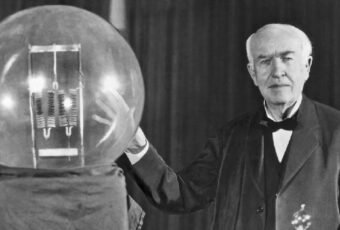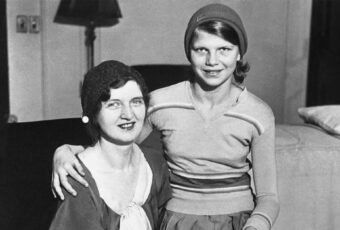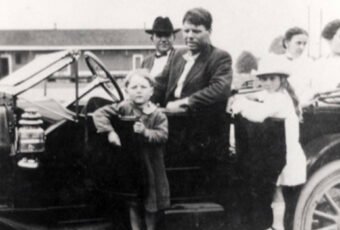Alexander The Great wanted to be both human and divine, he wanted to have supreme power over other human beings that could never be questioned.
Born in 356 B.C., to the powerful King Philip II and ambitious queen, Olympias (foreigner and 7-8th wife of Philip). Alexander the great was studied under the Aristotle of Stagira, who was a Greek philosopher who pioneered systematic, scientific examination in literally every area of human knowledge and was known in his time, as “The man who knew everything”.
Aristotle made such an impression on young Alexander the Great that he carried Aristotle’s work with him on his campaign and introduced his philosophy to the east when he conquered the Persian Empire.
Who was Alexander the Great
Alexander The Great’s achievements during the fourth century B.C. were astonishing, he united ancient Greece, seized Egypt, conquered Persian Empire and stretched his empire from Europe to Asia, he fancied himself as the son of god specifically Achilles and the son of Zeus.
The fact that Alexander was young, beautiful and empathetic only helped to increase his influence on his soldiers and subjects.
But this also troubled him deeply, as the empire of Alexander the Great diversified, he started growing fear of losing everything he conquered, he begins to look at everything, everyone suspiciously, even the one closed to him. He worried to lose all his power, he believed that they wanted his power, they wanted him dead. Despite his military accomplishments, ancient records say that he failed to win the respect of some his subjects and, furthermore, he had some of the people closest to him murdered
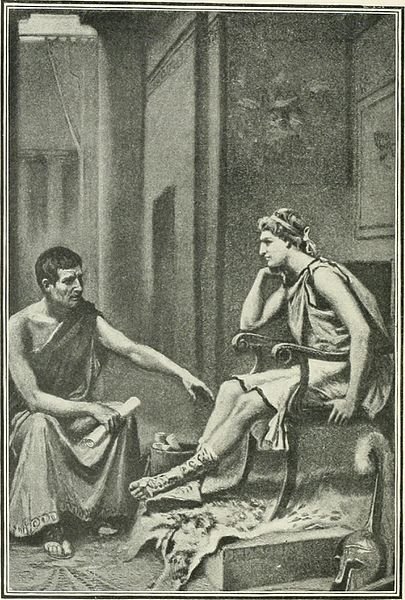
Alexander rose to glory quickly with the help of comrades in arms, this great start won him many new loyal followers who would trust their great ruler Alexander.
His forces invaded Achaemenian (Persian) Empire and scored two victories, the first was Granicus River near the site of Troy and the second in Issus.
He was offered truce from Darius III, the leader of Persia, which was rejected by Alexander the Great and he entered Persia Controlled Egypt in 332 B.C where he found the most famous of the cities that he would name for himself, Alexandria. He was being taken as a liberator from the Persian overlords, and Alexander often used the Persian invasions of Greece during the 5th century B.C. as an excuse for his actions.
Ironically, Alexander fought Greek mercenaries during the campaign against Darius III. Even more ironically, Alexander was opposed by the famously known 300 warriors of Sparta, the city that had lost its king and the handful of warriors in the Battle of Thermopylae during a Persian invasion attempt.
Going through the campaigning and journeying far into the desert near the modern day border with Libya, the young Alexander and his army pushed through desert to the Siwa Oasis, home of the oracle of Amun, which eventually was associated with Greek god Zeus. Alexander was proclaimed as god’s son by the priest in Siwa Oasis.
Hungry to conquer more and more and full of confidence, Alexander the Great for the third and final time defeated Darius Gaugamela (near Arbil in modern Iraq) in 331 B.C.
Persia was now under the rule of Alexander and more land was added to his expanding empire, but this didn’t stop Alexander, he along with his generals, continued with his campaign in east. One after another, cities like Babylon, Susa, and other capitals of the Achaemenian Empire were taken under control by the young king along with the great vast wealth.
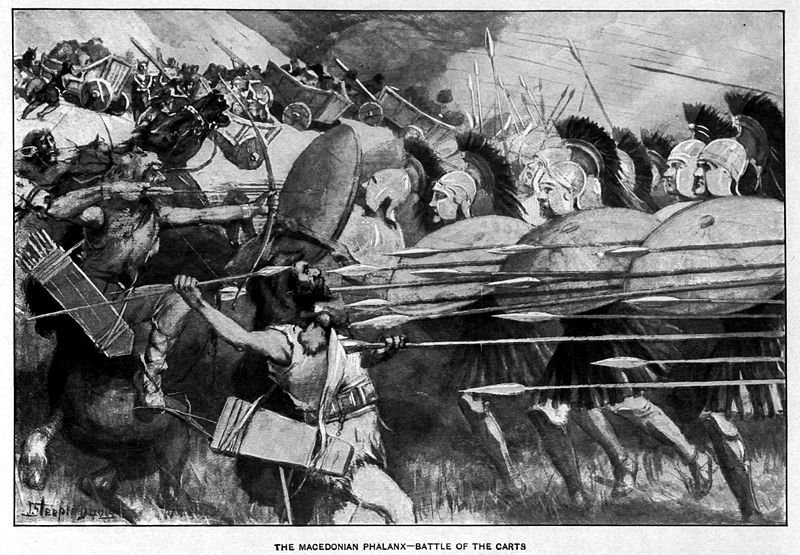
Alexander’s achievements and victories had not been won single-handedly, he had close friends and companions Ptolemy, Loyal Hephaestion, Craterus, Cleitus the Black and general Parmenio on his side through the Asiatic campaign. But while consolidating power, Alexander the great adopted to Persian customs, which triggered many of his Greek compatriots who found it insulting.
The two close friends of Alexander the Great
Parmenio also known as Parmenion, Alexander’s second in command and always had been a right-hand to Alexander’s father who even saved his life once at the Battle Of Granicus. Parmenio later served King Alexander after King Philip was killed.
Permenio enjoyed the close bonds with the court and the army along with being so close to Alexander who gained his trust over the time. Permenio even had several sons who served under Alexander. Alexander chose his most outstanding son, Philotas as to command the Companion Cavalry, an elite corps formed entirely from members of the Macedon nobility.
Philotas, being close to Alexander the Great also had a reputation for his hard work and bravery, along with being a generous and loyal friend. Although this closeness to the king made him more enemies who though him to be arrogant and were suspicious probably because of his accomplishments.
Philotas was believed not to always agree with Alexander and while Alexander was hailed as a god in Egypt, Philotas was said the be a vocal critic.
The plot against Alexander the Great
Craterus leading some of Alexander’s general came to known about plotting against his king Alexander. The plotting was believed to be carried out by none other than Philotas.
Craterus was the son of a Macedonian nobleman named Alexander from Orestis and brother of admiral Amphoterus. Craterus commanded the phalanx and all infantry on the left wing in Battle of Issus in 333 BC.
Later, Createrus ordered spies to keep a close eye on Philotas. But the spies found nothing much suspicious only treasonous talk which came out from a Greek prostitute. She told the spies about how Philotas kept bragging about him and his father (Parmenio) being responsible for all the victories achieved by Alexander the Great.
All the finding was reported to Alexander by Craterus, but Alexander didn’t give this pillow talk much credence as he trusted Philotas and more than that his father Parmenio, with whom he didn’t want to have conflicts arise, as Parmenio not only served his father, but also saved his life.
And the second plot
Later another treasonous plot was reported during 330 B.C., again by Philotas but this time there was assassination was involved. What gave this plot more weight was the fact that the man named Dymnus, who was planned to murder Alexander the Great was a member of Companion Cavalry (the elite corps), which was commanded by Philotas.
An informant, the brother of Dymnus’s lover even told Philotas twice about the plot, but Philotas did nothing, and allegedly failed to report a plot against Alexander’s life. The furious informant then decided to go directly to the king Alexander to expose Dymnus.
But Dymnus found about him being exposed and before could be arrested, took his own life leaving many mysteries unresolved. This time Alexander was convinced of the conspiracy and plot against him and Dymnus’s guilt, thus he ordered to publicly display Dymnus’s corpse to threaten and warn the potential traitors.
Soon, Alexander taking the whole incident seriously, and grown suspicion on his close friend, ordered Philotas, to answer the reason why he had not reported the plot against his king. Despite many evidence against him, Philotas denied having any role in the plot against Alexander, arguing that the allegations were trivial, the result of a lover’s quarrel.
Though, Alexander not convinced called in an assembly of the Macedon army to make a decision. This time in front of everyone, Craterus accused Philotas of not just having information about the plot and keeping it a secret, but also actually initiating the plot. The army found Philotas guilty after considering all the evidence and he was sentenced for death for being guilty of treason.
But this incident made Alexander’s closed ones more attentive and they didn’t want to let the matter end easily with Philotas’s death. Hephaestion proposed that they tortured Philotas before execution in order to find who else was involved along with him in the treason against their king Alexander.
Hephaestion, Craterus and some others tortured Philotas to give information about the alleged plot and everyone else involved in it. The same day, another former commander of the Companion Cavalry was stoned to death. (The act of pelting with stones; punishment inflicted by throwing stones at the victim)
Father comes after son
Philotas’s execution made Alexander more paranoid, and he embarked on what is believed to be his darkest deed. Alexander believed that it wasn’t possible for Philotas to have plotted against him without his father, Permenio not having any knowledge about it, moreover, it became obvious that now Permenio could plot against him to avenge the death of his son. Despite long-trusted services by Permenio to King Philip II and his son Alexander the Great, he was now seen as a threat, and Alexander would not risk any more time to get rid of the old man.
The differences between the two, Alexander and Parmenio had led to often disagreements related to tactics and strategy. Since Parmenio was in charge of the empire’s wealth and strategic supply lines, he held one of the most powerful positions. Some historians even believe that the plot against Philotas was cooked up for removing his father from such a powerful position.
Killing Parmenio is often looked like a sign of how Alexander was becoming so paranoid. According to writer Quintus Curtius, there was not a trial for Parmenio unless like his son Philotas. Alexander tasked two officers named Cleander and Sitalces for the assassination of Parmenio.
Before his killing, Parmenio knew nothing about the tragic fate his son have faced. Sources report that before Parmenio could know about the order of his assassination by Alexander, the two officers reached Parmenio and handed a series of letters, one by Alexander and other marked as by his son Philotas. While he was still reading the letters, Cleander opened him with his sword from thrust on his side, instantly killing Parmenio.
Soon, Alexander also dispatched a contingent to Ecbatana with orders to put down any rebellion that might ensue among Parmenio’s troops after his death.
Killing more close ones
Death of the father and son, his most trusted close companions degraded Alexander’s character deeply and continue to degrade in the coming years. He became more influenced by the Persian customs and continued to adopt them more rather than Macedonian ways.
On another unfortunate night for Alexander, on which he lost one more of his close and trusted follower, his old friend Cleitus, this time it was Alexander himself to take the life.
Alexander, determined to reach India and leading the army into the harsh terrain of the east, was believed to be drinking with Cleitus, who was angry that Alexander was adopting the Persian customs and policies. After a while and a furious argument between the two, resulted in Alexander to take the life of his own friend with a spear.
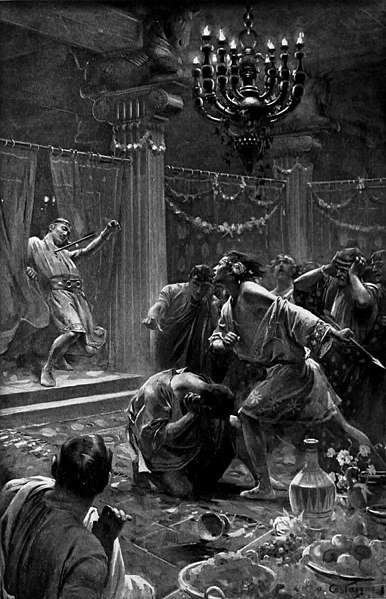
Alexander took his action terribly and felt great remorse for what he had done. He kept calling himself a friend’s murder and rejected to eat or drink for three consecutive days.
Not only Alexander himself, but his actions did quell opposition among his followers and many started plotting against the great leader, with many suspected of planning to murder him.
One of Alexander’s associates, the biographer, and historian Callisthenes, became entangled in the plot. As a Greek, Callisthenes didn’t appreciate Alexander’s adoption of Persian customs and policies. It is believed that none of the Royal Pages of Alexander the Great named Callisthenes as a conspirator, but the damage was done, and all the pages were executed. For the “crimes” of Callisthenes, he was imprisoned for life, following his death inside the prison.
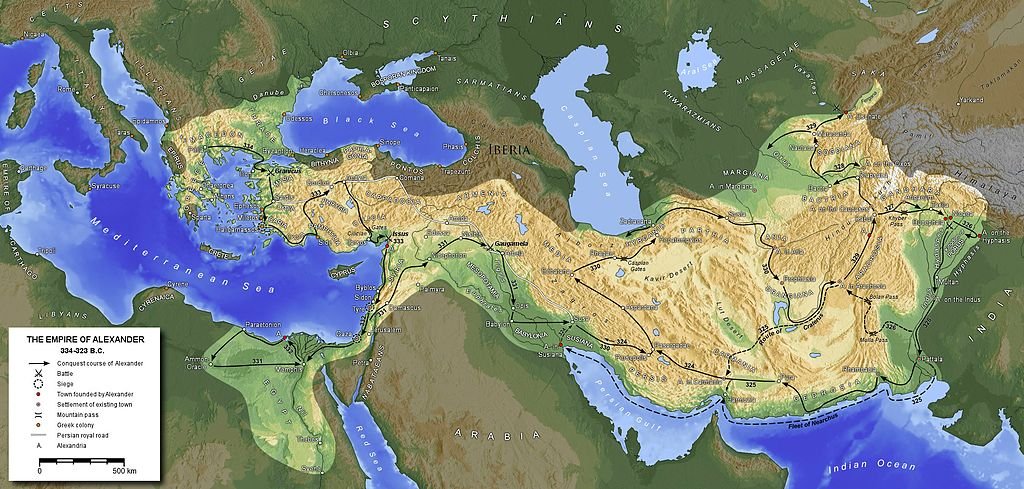
The final Journey of Alexander the Great
Not all days during Alexander’s Asian campaign were unhappy like rest. His forces captured a place called Sogdian Rock in 327 B.C. where he met Roxana, the daughter of the ruler. Alexander before dying had an unborn child with Roxana.
In 326 B.C., reaching the edge of India (As called by Greeks, but present day Pakistan), He made an alliance with one of the local ruler, who agreed to let Alexander use the city along with providing supplies he will require. All of it was in exchange of Alexander agreeing to fight Porus, another local ruler who was set to fight against Alexander with an army including 200 elephants.
During this war at the Hyphasis River, Porus had a defensive position but experienced king Alexander the Great had better strategies that helped Alexander to win the war. He used his cavalry to attack the wings of Porus’s forces, quickly putting his cavalry to fight against Alexander, this caused Porus’s foot soldiers, horses and elephants eventually jumbled together and Alexander’s army taking advantage to this chaos targeted the elephants using Javelins, the wounded giant animals started stomping both Porus’s and Alexander’s troops.

With everything falling apart for Porus, he stayed until the end of war and being captured. Alexander later made him an ally on account of his bravery.
Death of Alexander the Great
Death of Alexander’s close friend, general and bodyguard Haphaestion caused a drastic effect on Alexander’s behaviour, he started drinking heavily and the abuse started taking its toll on his overall persona. He became more reckless, inconsistent and self-indulgent.
This eventually cost him loose loyalty among his own men and officers. He always had a bad temper, rash behavior, impulsive and stubborn nature, but drinking made it worse. The soldiers being tired and exhausted, losing the vision refused to go further and Alexander had to retreat.
Alexander the Great then returned to Persia, now as being the ruler of an empire that stretched from Balkans to Egypt to modern-day Pakistan.
While Alexander was in Babylon, he caught a bad fever that would not go away. He soon, not able to speak at all, died. On that day a Babylonian astronomer dispassionately noted in his journal: “The king died; clouds made it impossible to observe the skies.”
Now you have read about The fateful death of Alexander the Great, you might like reading about the Weird Rules members of the Royal Family must follow. You might also like reading about 10 Actors whole killed people in real life.





